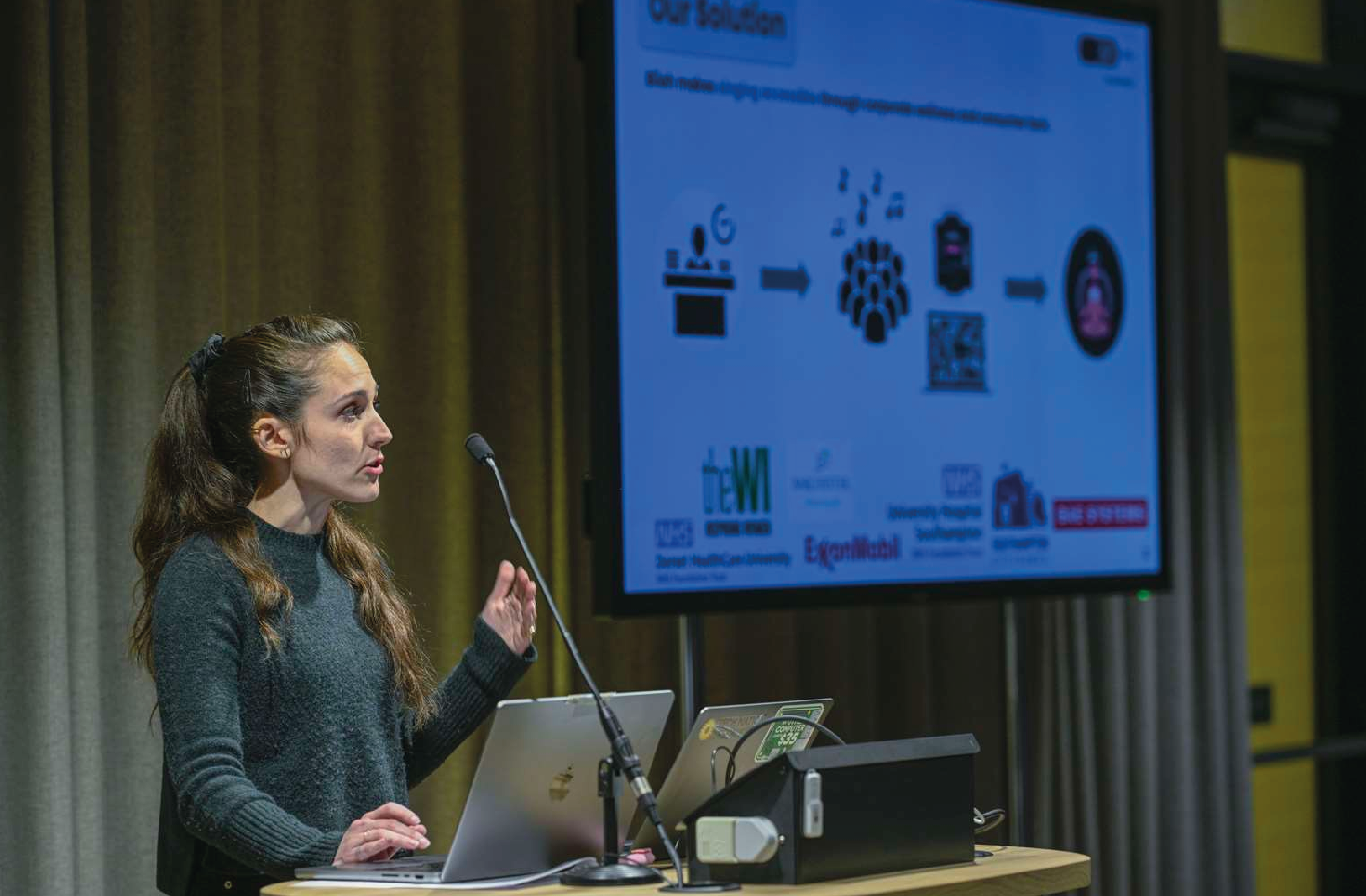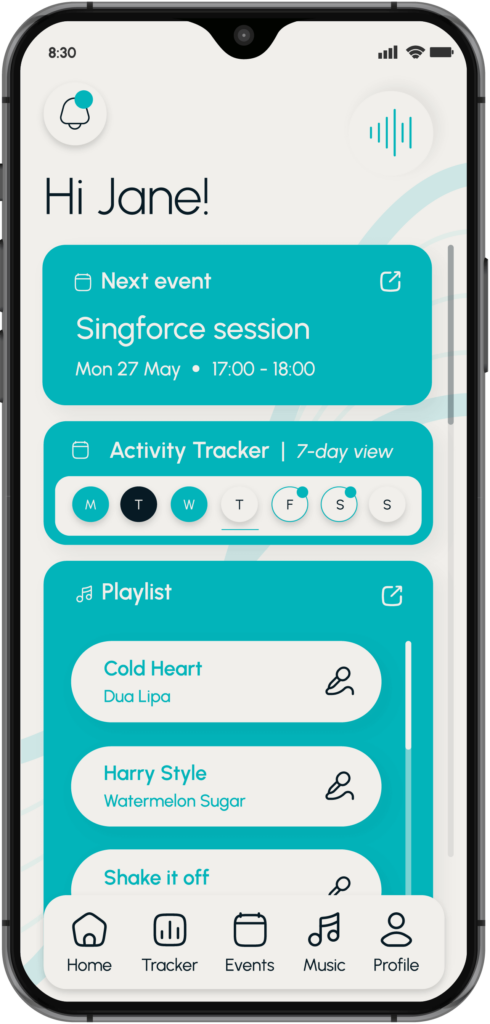
Emerging from Lockdown
March 2021 was tough. Emerging from a cold grey winter after months of ‘Stay Home, Protect the NHS, Save Lives’ to manage the second wave of the coronavirus pandemic, the malaise and fatigue felt on a national level was widely reported in the media and press.
There are some differences in the way we have responded to the second lockdown in the UK, compared to the first in March 2020. The UCL Covid-19 Social Study is a panel study of over 70,000 respondents focusing on the psychological and social experiences of adults living in the UK during the Covid-19 pandemic. Activities that particularly increased during the second lockdown (since January 2021) included working, watching television, streaming films and gaming, whilst 40% of participants reported exercising less than during first lockdown, 36% reported engaging less with arts and crafts and 30% less with other hobbies. Younger adults in particular reported increased working time, compensating with less time watching television. [5]
After a year of working from home, it is harder than ever to disconnect from work and the temptation to gravitate to the sofa and watch television during ‘down time’ seems much stronger. “We have reached a state of peak demotivation.” says Julia Faulconbridge, a member of the division of clinical psychology at the British Psychological Society.[1] This is an extreme representation of a problem that had already been identified before coronavirus, often referred to as ‘work recovery’.
What is ‘Work Recovery’?
Working conditions and task demands can deplete psychological resources. For many employees, the recovery process occurs each day after work and plays a crucial role in the relationship between stressful work characteristics and health and well‐being. After‐work recovery experiences are a bridge between work characteristics and well‐being outcomes [2], and positive engagement in a challenging non-work activity could be more beneficial to that recovery than a passive activity such as watching the television.
Faulconbridge says “If you can engage in something creative or learn something new, it is a great way to boost the kind of focus and motivation we are lacking at the moment…A sense of progress from learning a skill or craft are key to reversing the impact of stress and anxiety that underpin fatigue.” [1] Another study suggests that organisations may benefit from encouraging employees to consider creative activities in their efforts to recover from work.[4]
It can be hard to motivate yourself after a long working day, but once you start developing the positive habit it gets easier. It’s important to find the release that works for you. Everyone is different and whilst one person’s release is immersing themselves in another language and culture, dreaming of a place they long to visit, another person’s recovery may come from learning the skills to craft a beautiful garment through knitting or sewing, taking up a new sporting challenge or learning to dance.
Singing for Recovery
One work recovery activity that everyone can do is sing. We have already written about some of the benefits of singing for mental, social and physical wellbeing [see our earlier blog posts Singing and Mental Health and Singing and Social Cohesion]. Singing is also a great way to reset and unwind after an intense working day. Popularised by the BBC series, The Choir: Sing While You Work in 2012-13, many organisations recognise the value of singing and have established workplace choirs, and they haven’t stopped just because we can’t currently work or sing together in the same physical space.
There are tips and links to resources for setting up your own workplace choir on the BBC The Choir site here. If you want to set up a choir in your business but don’t have the expertise on hand, there are organisations that can help. Midlands based charity The People’s Orchestra was set up to fill the gap in music provision for musicians leaving education, who wanted to continue performing to a high standard. They also run The People’s Work Place Choirs. The Workplace Choir Company support companies large and small, from charities and public service organisations to global companies.
Medical staff at the front line of treating patients with coronavirus in intensive care units, many of which have been close to being overwhelmed at times [7], are also struggling with disconnecting from work. Instead of much-needed rest and recuperation after the first wave, the second wave arrived bringing further anxiety and concern. Hospital staff are tired and battle weary.[3] The emotional intensity of their long shifts making it difficult to disconnect and recharge when they return home. A study of workplace choir singing amongst Health Service staff in Ireland concluded ‘Given the low cost of this activity, and the qualitative benefits reported, it is recommended to continue to develop and evaluate health service workplace choirs.’ [6] Although they did note that efforts need to be made to engage staff from lower socio-economic backgrounds, diverse cultural backgrounds and male staff in work place health promotion activities, as these groups were found less likely to join a work place choir.

https://youtu.be/nZBW0ZQGmyM 25/3/2020
Dr. Elvis Francois, known as the ‘singing surgeon’ first came to our attention two years ago when videos of his hospital musical performances went viral. Now he isn’t just singing for his own work recovery, he recently travelled to Nashville with his friend and colleague, pianist Dr. Robinson, to record a four-song compilation called Music is Medicine to raise money for The Center of Disaster Philanthropy COVID-19 Response Fund.
What I would hope to share is a message of hope and strength and unity…and if we can share it through music, there’s nothing more special than that.
Dr. Elvis Francois [8]
Author: Dr. Sam Duffy
References
[1] Bee, P. 2021. Always tired? What to do if you have pandemic fatigue. The Times.
[2] Bennett, A.A. et al. 2018. Recovery from work-related effort: A meta-analysis. Journal of Organizational Behavior. 39, 3 (Mar. 2018), 262–275.
[3] Cottey, L. and Graham, B. 2020. Need for Recovery”— an early indicator of impaired healthcare staff wellbeing 2 Nov 2020.
[4] Eschleman, K.J. et al. 2014. Benefiting from creative activity: The positive relationships between creative activity, recovery experiences, and performance-related outcomes. Journal of Occupational and Organizational Psychology. 87, 3 (2014), 579–598.
[5] Fancourt, D. et al. 2021. Covid-19 Social Study: Results Release 29.
[6] Moss, H. and O’Donoghue, J. 2020. An evaluation of workplace choir singing amongst Health Service staff in Ireland. Health Promotion International. 35, 3 (Jun. 2020), 527–534.
[7] Pidd, H. 2021. “We’re bursting”: a day inside a Covid intensive care unit. The Guardian (online).
[8] Windsor, P. 2020. Singing Surgeon ‘Dr. Elvis’ Releases EP To Help Coronavirus Relief Fund. Forbes.com.





